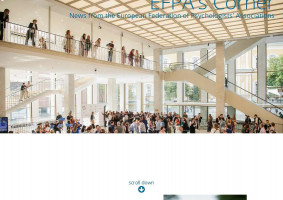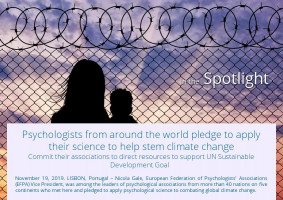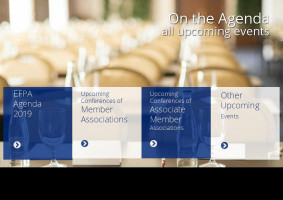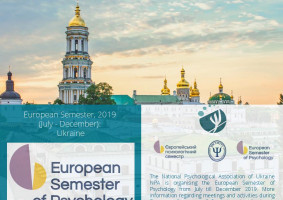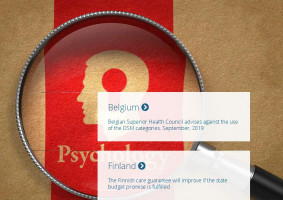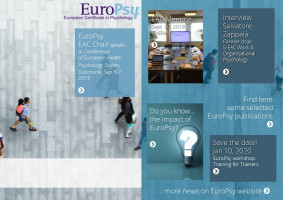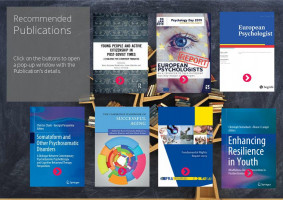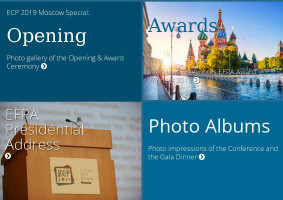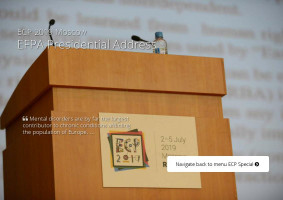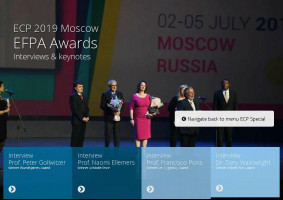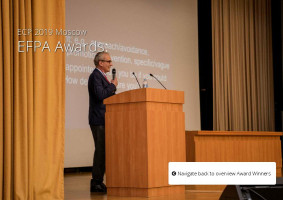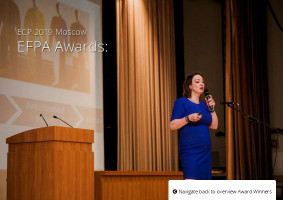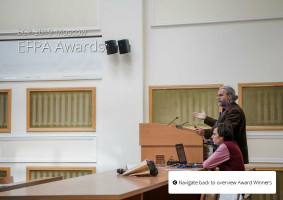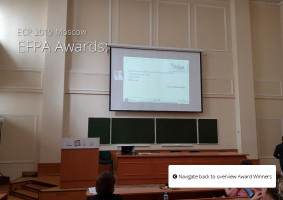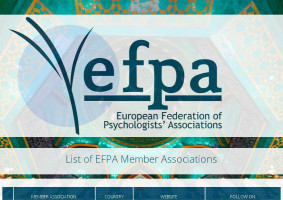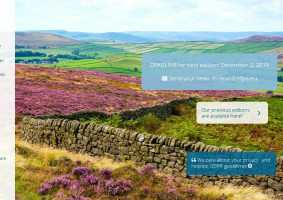Navigate back to overview Award Winners
More about
the lecture of Gollwitzer in pop-up
Interview
Prof. Peter Gollwitzer
Winner Wundt-James Award 2019
Interviewed by Tea Jermaniš (European Federation of Psychology Students' Associations - EFPSA)
Can you tell me a bit more about your background and how did you get into psychology?
After I finished high school in Germany, I really wanted to study Physics, with a focus on materials science. However, at that time I found out that I am colorblind and realized that conducting experiments in materials science might be difficult as a colorblind person, so I was searching for other options. I ended up studying Economics of Education and during these years I met psychologists who were doing experimental research. As I was always excited about doing experiments I switched to psychology. At first, I was particularly interested in psychophysics with a focus on understanding perceptual illusions and modifying them.
How did you become interested in goal concepts and motivation?
In my dissertation research I was mentored by Robert Wicklund whose research focus was on self and identity. One of our conjoint interests was the question of why people often present themselves more positively than they are, claiming competences they don’t have. At the time, the common explanation was that people do that to impress others. We argued that there might be a further mechanism underlying this phenomenon. For example, if you want to become a scientist and your first paper is rejected, you might want to point to other aspects of being a good scientist (e.g., having given a great conference presentation on your research) that indicate you are making progress on your way to becoming a good scientist. In other words, you will compensate. The purpose of such compensation is to assure yourself that you are moving forward in the direction of your desired future (i.e., being a great scientist).
So, we needed a concept to explain what triggers such compensatory action, and the goal concept seemed perfectly suited for that. We postulated that people can commit themselves to long-term identity goals such as being a great athlete, businessman, musician, and so forth, so when they run into failures they can always compensate by pointing to alternative things that indicate to them that they are still on track. This way they can stay in the field and learn to do what is needed in the identity domain to which they committed themselves.
What is the current focus of your research?
There are a number of research topics I pursue. I still study the mindsets that are associated with setting goals versus implementing goals: the deliberative mindset and the implemental mindset, respectively. The idea behind this is that people process information and reason differently, depending on their mindset. So far, we mostly analyzed behavioral goals, but now we have moved to more complex goals such as making good decisions. We argue that deliberative mindsets should facilitate good decisions, and in support of this hypothesis we find that people who are put in a deliberative mindset arrive at less risky decisions than people in an implemented mindset.
Another research topic that I am currently working on is whether if-then planning may not only promote the implementation of behavioral goals but also facilitate goals related to thinking. The main research question we ask ourselves is whether if-then planning can promote deep reasoning. For example, if you need to solve a decision problem that needs sophisticated reasoning and you make a plan to engage in such reasoning, will such a plan improve the quality of your decision? Research shows it does and that people can actually plan to think deeply. In our recent research on if-then planning, we also study what kind of situational contexts induce spontaneous if-then planning and what situational contexts make these plans particularly effective (e.g., being in an angry mood, or facing unorganized situations).
Is there any additional research topic, apart from your current focus, you want to tackle?
We have started to analyze whether people can use if-then planning to change bad habits, such as eating unhealthy food, drinking too much, not exercising enough, etc. On this topic, I am collaborating with Gabriele Oettingen whose main research focus is on the self-regulation strategy of mental contrasting that helps people find out which of their many wishes they actually want to pursue. We now combine mental contrasting with if-then planning. Once you know what you want by engaging in mental contrasting, you can make plans on how to get there. We call this self-regulation intervention Mental Contrasting with Implementation Intentions (MCII). In a series of intervention studies, we found that MCII is working very well on reducing smoking, sleep procrastination, eating healthy, exercise more, etc. There is an app developed by Gabriele Oettingen that you can download for free (go to woopmylife.org). It is programmed to help you go through the MCII procedure (also referred to as WOOP, an acronym standing for Wish-Outcome-Obstacle-Plan). It helps you to discover the wishes that are dear to yourself, the outcomes you want to realize, the personal obstacles that stand in your way, and finally to make if-then plans on how to overcome these obstacles.
What advice would you give to psychology students and young researchers?
Looking at my academic career, I would like to suggest that you concentrate on finding research questions that really get you excited. Then follow this excitement and develop it into a passion. Don’t ruminate about the difficult path of becoming a successful scientist. It will be a long journey for sure, and if you don’t have research questions that really excite you, it will be hard for you to stay in the field. How you want to do your research, with whom you want to do it and where, are all secondary questions. If you have passion for conducting your research, you will find exciting ways to conduct it and people who will help you with it. Your passion will be contagious; it will motivate others around you to collaborate with you.
_w612_h612_1.jpg)
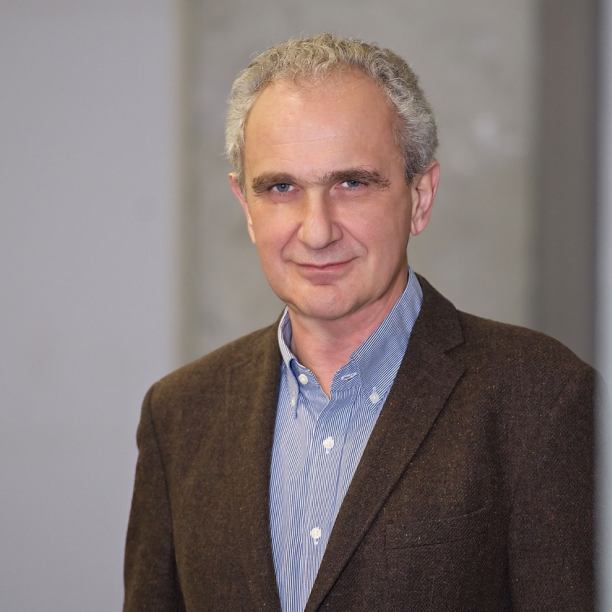
_w612_h612_1.jpg)
_w612_h612_1.jpg)

